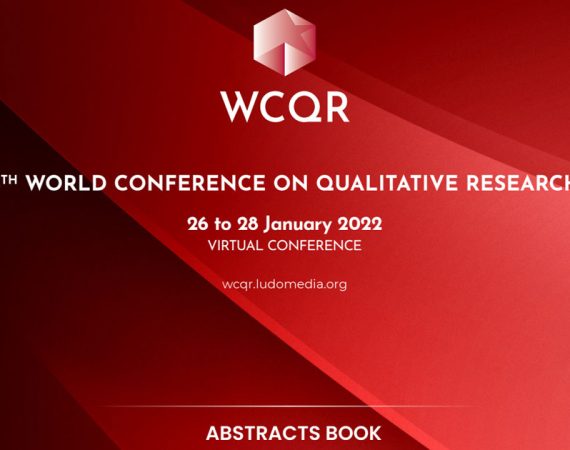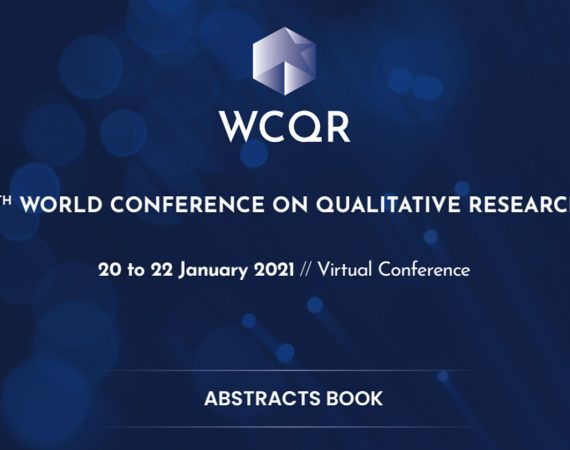Notícias
Qualitative Research
Categorias
Tags
Tags
academic event
academic publication
academic research
artificial intelligence
arts-based research
call for abstracts
call for papers
call for submissions
CAQDAS
chatGPT
Computer Aided Qualitative Data Analysis Software
conference
Data Analysis
data analysis techniques
data visualization
education research
flowcharts
graphs
healthcare research
hybrid conference
maps
qualitative analysis
Qualitative Analysis Software
Qualitative Data
Qualitative Data Analysis
Qualitative Inquiry
Qualitative Research
Qualitative Researchers
questionnaire surveys
Research
research methods
science
scientific production
scientific writing
scopus
social research
Social Sciences
tables
visual outputs of qualitative data
WCQR
WCQR2024
web of science
webQDA
world conference
World Conference on Qualitative Research
Publicações
Eventos
Data visualisation can be used from organising qualitative research data to analysing and presenting results. It also can contribute to researchers and their readers to discover new interpretations and knowledge about the phenomenon studied.
Visual representation is helpful during all phases of data analysis. These allow identifying patterns, numerical and non-numerical trends, using graphs, maps, tables, diagrams, flowcharts, among others.
Qualitative Research has benefited from the enormous progress in terms of methods and techniques with intensive use of technology. The current demands in the investigative context compel more and more researchers to equip themselves with digital tools that provide speed and efficiency in their research processes.
One of the main errors verified in research is the lack of planning of adequate methods for data analysis. For example, to develop a data collection instrument, it is necessary to pay attention to the tools used to obtain results (analysis). Analysing qualitative data is not a task without difficulties, as the non-numeric and unstructured data corpus is generally diffuse and complex. There are no clear and widely accepted rules on how to analyse non-numeric and unstructured data.
For very practical purposes, it can be said that qualitative research of scientific nature has three stages: (1) an exploratory phase; (2) fieldwork; (3) analysis and treatment of the empirical and documentary material.
The exploratory phase consists of the production of the research project and all the procedures necessary for preparation to enter the field.
The fieldwork phase constitutes the primordial moment for understanding, in intersubjectivity, the empirical reality under study.
Content Analysis is a data analysis technique, collected from a variety of sources, but preferably expressed in text or images. The nature of these documents can be varied, such as archival material, literary texts, reports, news, evaluative comments of a given situation, diaries and autobiographies, articles selected through the method of literature review, transcripts of interviews, texts requested on a specific subject, field notes, etc
This second volume of ‘New Trends in Qualitative Research: Practices and Challenges” includes selected papers presented at the 5th annual World Conference on Qualitative Research (WCQR) held virtually from 20-22 January 2021.










